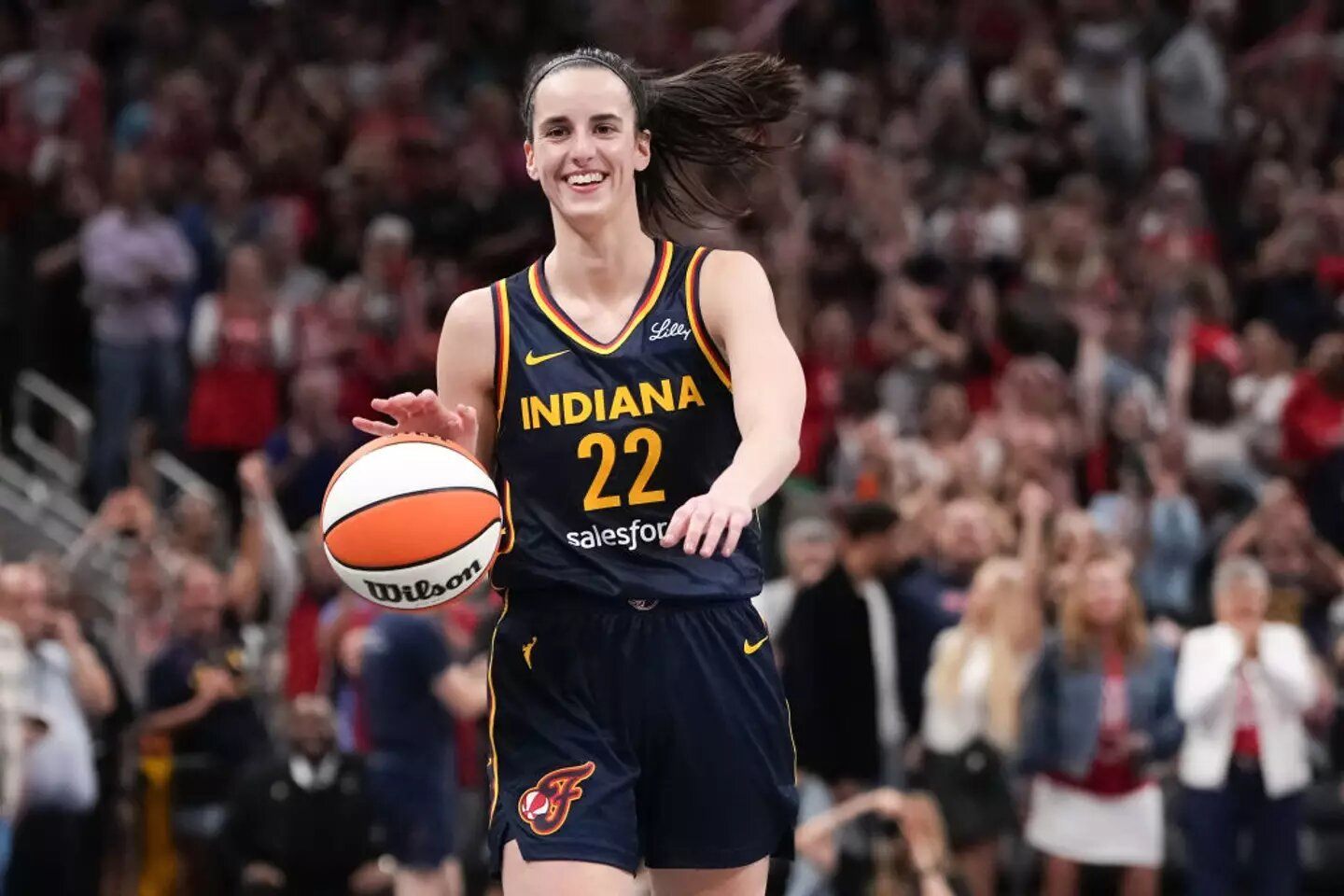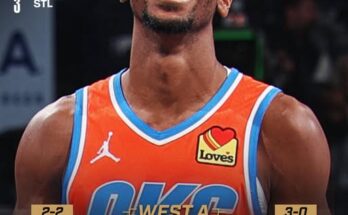Boston Celtics legend Bob Cousy, one of the most revered figures in the history of professional basketball, recently added his unmistakable voice to one of the most important conversations happening in sports today—the disparity between talent and compensation in the WNBA. His comments came as the debate surrounding Caitlin Clark’s impact on the league and the economic realities faced by its players has reached a boiling point. Cousy, never one to shy away from candid views, didn’t mince words. He believes the WNBA and its players should be “kissing the ground Caitlin Clark walks on.” A strong statement from a man whose basketball résumé includes six NBA championships, 13 All-Star appearances, and a legacy of using his platform to speak out about inequality.
Cousy’s support of Clark cuts through the noise with a sharp edge because it comes from someone who not only helped shape the NBA into a cultural giant, but also understands how generational athletes can shift public perception and redefine what’s possible. He sees in Clark a transformative figure—someone whose skill, charisma, and ability to captivate audiences are not just good for the game, but vital for its growth. In Cousy’s eyes, Clark represents a lifeline for the WNBA, and that alone makes her deserving of not just recognition, but real, measurable financial compensation.
The numbers back him up. Since Caitlin Clark entered the WNBA, everything changed. Viewership numbers exploded. Attendance records, long stagnant, were broken in multiple arenas. Merchandise sales reached new heights. Fans lined up for hours to catch a glimpse of her, not unlike what the NBA experienced with players like Magic Johnson, Michael Jordan, or Stephen Curry in their respective eras. Clark, despite being a rookie, has already become the face of women’s basketball in the United States. Her presence isn’t merely additive to the league—it’s foundational to the WNBA’s current popularity surge.
And yet, she’s playing under a rookie contract that pays her less than \$80,000 a year. For someone single-handedly responsible for millions in new revenue, it’s an amount that borders on the absurd. This disparity has become symbolic of a broader issue: the chronic underpayment of WNBA players, who continue to perform at elite levels while operating within a league system that caps their earning potential far below that of their male counterparts.
Clark’s contract, dictated by the current collective bargaining agreement, reflects the outdated economics of a league that, until recently, didn’t have the kind of national and international attention it now enjoys. But with change on the horizon and a new labor deal under negotiation, Clark’s stardom has become a flashpoint in the debate over how players should be compensated moving forward. Her arrival has accelerated the urgency of these discussions, and her agent has publicly acknowledged that she, along with every other player in the league, deserves far more than what they’re getting now.
Clark herself has not been silent. In media appearances and postgame interviews, she’s spoken with poise and clarity about the need for change. She’s careful to frame the issue not just as a personal one, but as a systemic problem affecting all her peers. Her advocacy is powerful not because it’s loud, but because it’s backed by results. When she speaks, the league listens—not just because of what she says, but because she’s become indispensable to its bottom line.
It’s not just the media and fans who’ve taken notice. At the recent WNBA All-Star Game, Clark joined fellow stars in making a visible statement about pay equity. Wearing black T-shirts bearing the words “Pay Us What You Owe Us,” they walked onto the court unified in message and appearance. The league, which has long struggled to bridge the gap between entertainment product and equitable labor conditions, now finds itself in a position where its players are not just athletes—they’re cultural symbols demanding better.
Bob Cousy, witnessing all of this from a place of historic insight, recognizes a familiar pattern. He came up in an era when the NBA itself was barely scraping by, before the TV deals, shoe contracts, and billionaire owners. He knows what it’s like to play the game not for glory or riches, but because of love for the sport. And he understands how much a singular player can mean to a league. When he says the league should be grateful to Caitlin Clark, he’s speaking with the kind of authority that transcends generations. Cousy understands value—not just statistical value, but the kind that shifts public consciousness and creates financial waves. That’s what Clark has done, and that’s why Cousy is standing behind her.
While Clark’s situation is particularly striking, it’s important to remember that she is not alone. Dozens of WNBA players have been voicing similar frustrations for years. From legends like Diana Taurasi and Sue Bird to current stars like A’ja Wilson and Sabrina Ionescu, the demand has always been simple: recognition through fair compensation. The problem isn’t a lack of talent. It’s that the economic model hasn’t kept up with the quality of the product or the passion of its athletes. Caitlin Clark’s arrival has simply made that imbalance impossible to ignore.
There’s also an emotional dimension to all of this. Clark has had to navigate extraordinary pressure, not just to perform, but to represent a league, a movement, and a gender. Every pass, shot, and postgame comment is scrutinized not just for what it says about her, but for what it implies about the entire ecosystem of women’s sports. That’s a heavy burden, especially for a rookie. Yet she’s handled it with professionalism and purpose. The gratitude and support she receives from fans, former players, and voices like Cousy’s are a reflection of how well she’s shouldered that responsibility.
But gratitude alone won’t balance the books. What needs to happen is structural change. The next collective bargaining agreement must reflect the economic reality the league now enjoys. If Caitlin Clark is responsible for bringing in tens of millions in new revenue, then both she and her peers deserve a proportional share of that success. Without it, the league risks sending a discouraging message to its most valuable assets: that even the brightest stars can’t break the pay ceiling.
Cousy’s comments might seem blunt to some, but they are grounded in truth. The WNBA’s current boom isn’t an accident. It’s the result of hard work by hundreds of athletes over decades, yes—but it has undeniably been accelerated by Clark’s arrival. That kind of momentum is rare. Leagues that fail to capitalize on such moments often find themselves stagnating. Cousy knows that the NBA grew only after it embraced stars and built its brand around them. The WNBA has a similar opportunity now, and Cousy is urging them not to waste it.
What’s clear is that the conversation around women’s basketball has changed—perhaps permanently. No longer is it confined to niche audiences or polite applause from the sidelines. It’s center stage. The fans are here. The revenue is here. The talent is undeniable. All that remains is for the financial recognition to match the reality. Cousy, in lending his stature to Clark’s cause, is helping to close that gap. He’s giving historical weight to a present-day movement that refuses to be ignored.
For Caitlin Clark, the journey is just beginning. She’s already left an indelible mark on the sport, and her legacy will likely extend far beyond statistics or titles. She’s a symbol of possibility—a reminder of what can happen when talent meets opportunity, and when that opportunity is finally matched with value. For the WNBA, the message from Cousy and countless fans is crystal clear: this isn’t just about one player, but a turning point for an entire league. It’s time to meet the moment, to listen to the legends, and to pay these women what they deserve.



